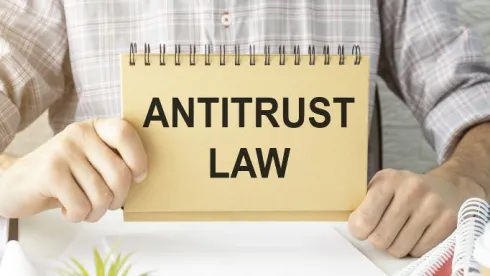Last week, the Biden Administration – acting through the Federal Trade Commission (FTC) – published a proposed rule and regulations (“Rule”) that would prohibit employers from imposing non-compete agreements and would rescind existing non-competes in most circumstances. The FTC stated that this action is necessary under federal antitrust law because, according to the FTC, non-competes restrict worker mobility, repress wages, and stifle competition, entrepreneurship and innovation. Click here for the full text of the proposed Rule.
Below is a short summary of the proposed Rule and what it will do and not do if enacted in its current form:
-
Who Is Covered?: The proposed Rule would apply to all employers in the United States and cover all workers – i.e., employees and independent contractors.
-
What Is a Non-Compete?: Under the Rule, “non-compete agreements” are broadly defined as a contractual provision between an employer and a worker that prevents the worker from seeking or accepting competitive employment, or starting or operating a competing business, typically within a certain geographic area and period of time after the worker’s employment ends.
-
What Does the Rule Do?: Subject to the exceptions noted below, the proposed Rule: (a) broadly bans non-compete agreements going forward; (b) requires employers to notify workers that their existing non-competes are rescinded; and (c) bars employers from telling workers that they are subject to a non-compete or threaten enforcement of a non-compete.
-
Exclusions – NDAs & Non-Solicitation Agreements: The Rule does not generally prohibit employers from implementing non-disclosure/confidentiality agreements or agreements barring a former employee from soliciting the business’s clients/customers or from soliciting/recruiting other employees, unless the NDA or non-solicitation provision is written so broadly that it effectively operates like a non-compete and precludes the worker from working in the same field.
-
Training Repayment Agreements: The Rule also does not generally prohibit employers from entering into agreements that require workers to pay the employer (or a third-party entity) for training costs if the worker’s employment terminates within a specified time period, as long as the required payment is reasonably related to the training costs incurred by the employer.
-
Limited Exception for Owners: The ban will not apply to non-compete agreements with individuals who are selling substantially all of their ownership interests in a business or substantially all of the assets of a business, so long as that person owned at least 25% of the business being sold. In other words, the Rule would ban non-competes even in the context of a sale of a business if the person has less than a 25% ownership stake.
-
Existing State Laws: The proposed regulations would supersede any state or local laws that conflict with the proposed Rule, and employers would have to come into compliance 180 days after publication of the final regulations (i.e., several months from now).
The proposed regulations have not yet been published in the Federal Register at this time. As soon as they are published, the FTC has invited the public to comment and suggest revisions over a 60-day period. Among other things, the FTC may entertain whether certain executives and high wage earners should be exempted from the non-compete ban. Once the comment period concludes, the FTC is likely to make some revisions to the Rule before officially rolling it out, but we do not expect a major overhaul at this point.
This action by the FTC is obviously significant. Until now, the federal government basically left it up to each state to establish rules and boundaries for non-competes, and most states (including Florida) generally recognize that non-competes are permissible as long as they are supported by a company’s legitimate business interests. Therefore, this Rule, if/when enacted, will probably be challenged in the courts.



 />i
/>i
